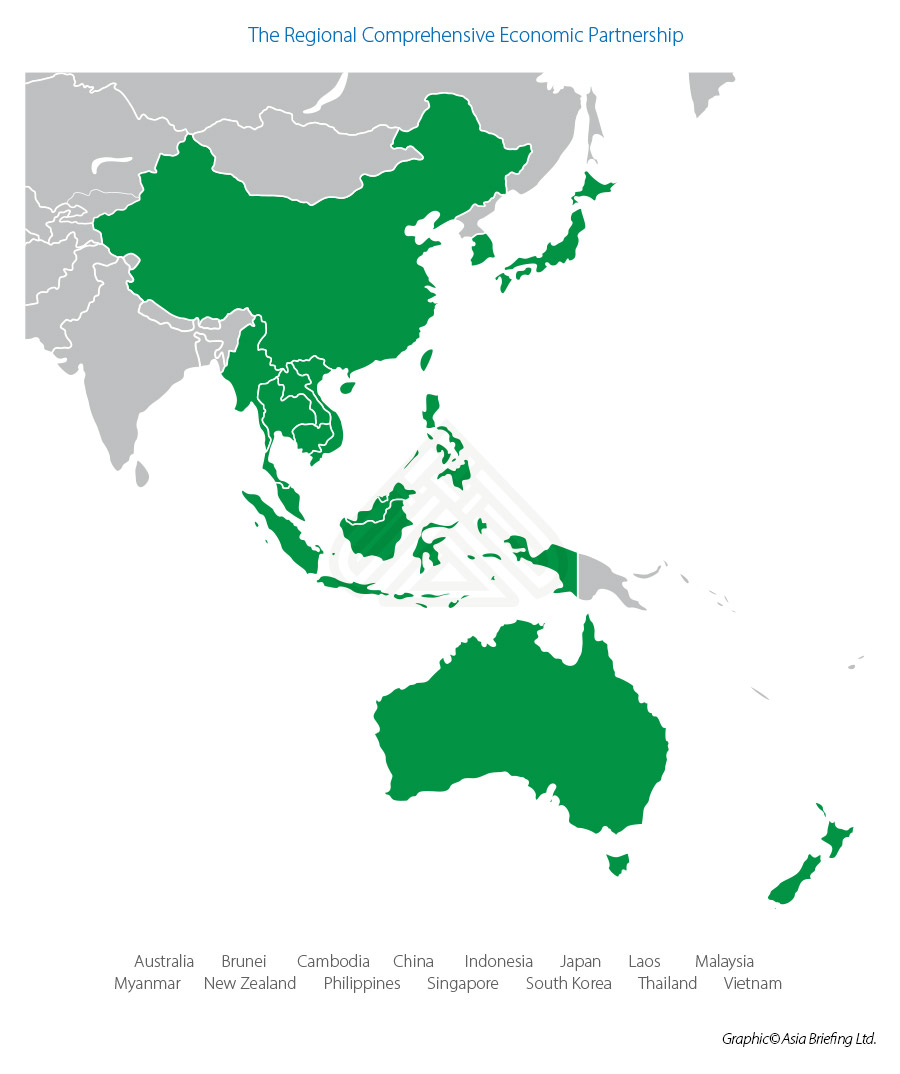India Pulls Out Of Pan-Asia RCEP Free Trade Agreement
Op/Ed by Chris Devonshire-Ellis
RCEP 15 Deal Expected To Be Signed Next Month
India has pulled out of the long-negotiated Regional Comprehensive Economic Partnership, a proposed free trade deal that has long been championed by China. The United States had also agreed to sign off but pulled out when President Trump took office. The agreement now includes the ASEAN bloc – Brunei, Cambodia, Indonesia, Laos, Malaysia, Myanmar, Philippines, Singapore, Thailand and Vietnam, along with Japan and South Korea, in addition to China, Australia and New Zealand.
India’s decision to pull out came after domestic concerns that India would be opening itself u to cheap Chinese imports and would damage domestic manufacturers. Narendra Modi, India’s prime minister, told countries at the Regional Comprehensive Economic Partnership summit in Bangkok yesterday that India would not sign off on the RCEP agreement, according to India’s foreign ministry.
In a joint leaders’ statement, the 15 other participating countries said they had “concluded text-based negotiations for all 20 chapters and essentially all their market access issues”, in preparation for signing the pact in 2020. The statement indicated that India could choose to join the trade deal later, noting that “India has significant outstanding issues, which remain unresolved” but adding that “all RCEP participating countries will work together to resolve these outstanding issues in a mutually satisfactory way”. It is expected that a deal among the RCEP 15 will now be signed off next year, when Vietnam holds the Chairmanship of ASEAN.
India’s decision to pull out is the latest in a series of measures that are hindering India’s ability to progress and become competitive on the world stage. The country is already missing out on what should have been a developing manufacturing boom as global manufacturing relocates from China to other parts of Asia. India has the same age demographic dividend that propelled China to success two decades ago, and should have been ready to position itself as a global workshop of the world by combining low worker overheads with improving infrastructure and productivity. Instead, it has become rather more consumed by internal factors and is missing the larger picture.
Although there are legitimate concerns about Chinese manufacturing and access to the domestic Indian market, much of this push-back is to do more with continuing to protect local manufacturers from having to upgrade and invest to compete. India has also been sluggish in providing free trade zones for foreign investment, while many of its own manufacturing businesses invest in India via Mauritius to avoid capital gains tax. The national business elite is ultimately adopting a well entrenched, yet selfish approach that will have the longer term effect of seeing the country stagnate. The conundrum for India is that politically useful currently high GDP growth rates are more to do with infrastructure development than sustainable manufacturing productivity. As a result, the manufacturing dividend that should be passing from China in part to India is instead moving to Africa – which also possesses a worker-age dividend, and while infrastructure and productivity levels may not on a continental basis yet compare – will do within the next five-ten years.
India may be the world’s largest democracy, but one cannot help but think that if it had a government that could take a longer term strategic view as China can, it might be in a better position to take longer term strategic decisions instead of being tied to vested domestic interests at the expense of developing a national strategy for the country to actively participate and compete in regional trade.
Related Reading
- RCEP Members Agree to Liberalize Services Market, Other Concessions for India
- RCEP Negotiations and India’s Position on the Asia-Pacific Trade Pact
- What the CPTPP and RCEP Mean for China and Asia-Pacific Trade
About Us
Silk Road Development Weekly is compiled each week by Chris Devonshire-Ellis, Chairman of Dezan Shira & Associates. The firm has 28 offices throughout Eurasia and assists foreign investors into the region. For strategic advisory and business intelligence issues please contact the firm at silkroad@dezshira.com or visit www.dezshira.com






